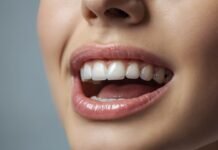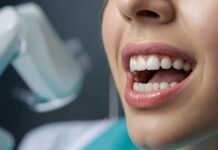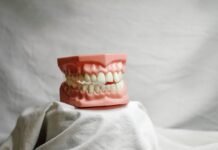Having healthy gums and teeth is essential to protect your long-term oral health. It takes more than good tooth brushing routines. You need to be flossing correctly between your teeth, attend regular dental checkups, and learn if other issues are hiding under the surface of your gums.
The majority of oral health conditions are preventable and can be treated in their early stages. In the United States, the majority of cases are dental caries, periodontal diseases, bone loss, and oro-dental trauma.
Many people suffer from dental issues that lead to bad breath, pain, bleeding, or the need for a loose dental implant repair. Some of these problems are treatable and preventable. But you need to know them to help you take suitable precautions. Here are some of them:
Gum or periodontal disease
Gum disease is among the top dental issues. The problem arises due to the building up of plaque and bacteria. When a person has gum disease, their gums bleed easily. In most cases, the gum is reddish and swollen. This issue leads to bad breath and sensitivity.
You may save yourself from gum disease by starting with proper brushing. Failing to brush your teeth regularly or using the wrong brushing techniques play a significant role in causing gum disease. Also, diabetes, tobacco use, failing to floss regularly, and pregnancy increase this dental issue’s prevalence. The issue can be painless and unnoticeable.
If you fail to treat gum disease, it develops and becomes periodontitis. Periodontitis infects your gum pocket, which can damage your teeth, bones, and tissues. The gum can also shrink, or you may lose your teeth permanently. People with these issues have persistent unpleasant mouth taste and bad breath. So, it is crucial to take care of your teeth to avoid such problems.
Untreated Tooth Decay and Poor Oral Care
Have you ever experienced some form of tooth decay? According to dentists, everyone has a possibility of suffering tooth decay or experiencing it. This issue occurs due to bacteria formation on your tooth. The bacteria generate acids that eat away at your tooth enamel, extending to the dentin layer.
Dental checkups help you know the status of your teeth. A damaged tooth or tooth loss due to a car accident or sports injury may require a dental implant.
If your oral health has deteriorated to the state of gum disease dental implant restoration may be your best option.
This process involves the extraction of the decaying tooth. The dentists then replace them with dental implants. When the case is not extensive, your dentist can recommend other options. This includes crowns, root canals, and fillings. Each of these options attracts some costs. So, it is essential to consider the prevention measures.
Sensitive Teeth
Teeth sensitivity is another common dental health issue common in this decade. You can be a victim of sensitive teeth when your enamel wears out. This exposes the dentin, making them sensitive to cold or hot substances. The issue occurs due to other proceeding dental issues such as root infection, gum diseases, enamel erosion, and broken tooth. If the break is too severe to save the tooth, a tooth implant may be the ideal solution.
If other extending problems are involved, they can recommend gum graft, crown, fluoride, or root canal as the perfect remedies.
Bone Loss
As people age, loss of bone may impact the health and stability of their teeth and gums. If an existing dental implant has become loose due to severe infection and subsequent bone loss, it may be possible to still save it. Seniors or individuals facing this concern may want to double up on their dental checkups. Catching oral brewing issues ahead of needing an emergency visit to the dentist will always be your best defense.
More recent studies challenge previous assumptions that bone loss in the mouth is regulated solely by oral microbes. It also opens the possibility that noninvasive digestive tract bacteria from poor diets may be a contributing factor. We’ve long known that keeping sugars to a minimum is important, but there is more to protecting the bones that hold your teeth in place through diet than that.
Specific bacteria in the gut also appear to play a role in maintaining alveolar bone, according to a recent NIDCR-supported study published in Laboratory Investigation. “It’s well known that shifts in the oral microbiota can induce inflammatory immune responses that cause bone destruction,” says Chad Novince, DDS, PhD, the study’s senior author and associate professor at the Medical University of South Carolina (MUSC).
Oro-dental trauma
Oro-dental trauma is commonly caused by injury to the teeth, mouth, and oral cavity. Approximately 20% of people suffer from trauma to teeth at some point in their lifespan. Oro-dental trauma may be triggered by other oral factors such as lack of alignment of teeth and environmental factors (such as unsafe playgrounds, risk-taking or sports activities, vehicle accidents and violence). Treatment can become costly and lengthy and sometimes can even lead to tooth loss, resulting in complications for facial and psychological development and quality of life. Early diagnosis and treatment matter!
Conclusion
Consider visiting a dentist for an extensive checkup and gain a recommendation for your personalized treatment plan.
Dental issues most often can be prevented. You can save yourself or decrease the chances of suffering from these preventable dental issues by enhancing your oral hygiene, regular dental visits, and by being observant.


























